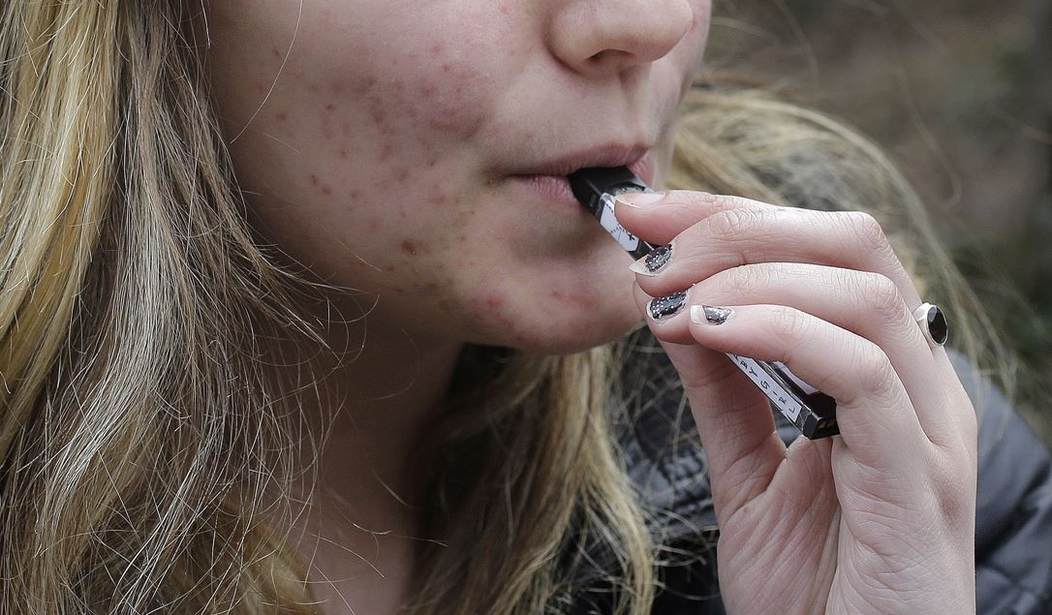A new paper by the Institute of Economic Affairs has proposed the need for an “innovation principle” to guard against over precaution when faced with innovative new products entering a market.
To illustrate this, the paper discusses the varying regulatory treatment of reduced risk nicotine delivery products in different countries. The paper suggests that this varying treatment has created a series of natural experiments by which to judge which regulatory approach – from the liberal on the one hand and the prohibitionist on the other – to determine which leads to the most beneficial outcomes.
The authors liken the less-than-perfect safety evidence of vaping products to the similar uncertainty surrounding Covid-19 vaccines. The study points out that governments have decided that vaccination can reduce harm from the disease even if the doses can cause side effects. It also points out that many who are fully vaccinated will still die, and even that a small number may die from administration of the vaccine itself. No country has banned Covid-19 vaccination because of these downsides because they understand that deaths will be far higher if vaccines were banned.
Yet, with the advent of reduced risk nicotine innovations like vapes, heated tobacco, snus and nicotine pouches, many jurisdictions have reacted with extreme caution. Despite the 1 billion smokers around the world (8 million of whom die of smoking-related disease every year) many countries – citing the precautionary principle - have banned the products or regulated them so severely as to nullify the full benefit to public health they could provide.
The authors suggest that “overapplication of the precautionary principle can hold back innovations that could have positive effects far greater than the risks that precautionary regulation aims to prevent” and that tobacco harm reduction opposition “demonstrates the dangers of a rigid interpretation of the precautionary principle and illustrates the need for an innovation principle.”
Recommended
There is nowhere more in need of a better approach than the United States. The reaction among policymakers across the country towards safer nicotine products has been akin to the reefer madness hysteria of the mid-20th century.
Mitch Zeller, departing head of the Food and Drug Administration’s (FDA) Center for Tobacco Products, said during a TED talk on vaping regulation that if done “the right way, it will allow more smokers to quit” and that policies “should encourage and support innovation of less harmful products for adults who need them.” Yet the FDA is systematically banning nearly every vaping product currently available on the market. The agency received 6 million applications for premarket approval of vaping products but has rejected almost all of them. It has only allowed three brands and even those are not allowed to be sold in any other flavor but tobacco.
The federal government has flirted with the idea of banning all flavors and has just passed a law which drags synthetic nicotine into the FDA’s purview, presumably to be followed by millions more product denials. Last year a vape tax bill that would have imposed a federal tax on vaping products nine times higher than the federal tax on cigarettes was narrowly defeated.
Meanwhile in states across the country, bills are being proposed to apply excessive taxation to vaping products, ban almost all flavors, limit nicotine delivery, or a combination of these and other restrictions, thereby effectively destroying almost all the harm reduction potential.
Anti-vaping activists also exaggerate the level of harm that vaping products present. Nothing is harmless and there may be concerns over long term use, but the risks are, hypothetical with no death recorded worldwide from vaping regulated products. By comparison, 480,000 smokers die every year in the U.S.
It is often cited that it took 50 years of evidence before the Surgeon General confirmed the link between smoking and numerous diseases in 1964, but that was using the science of yesteryear, not the sophisticated analytical tools available today. If smoking was invented now, the harms would be quickly recognized.
Innovation is a key tool for human advancement, yet over-precautionary regulations can often snuff out great opportunities by not properly weighing up benefits as well as risks. This is especially true of excessive caution towards tobacco harm reduction innovation where the missed opportunities can be counted in lives unnecessarily lost.
Martin Cullip is an International Fellow at The Taxpayers Protection Alliance's Consumer Center and is based in South London, UK.

























Join the conversation as a VIP Member